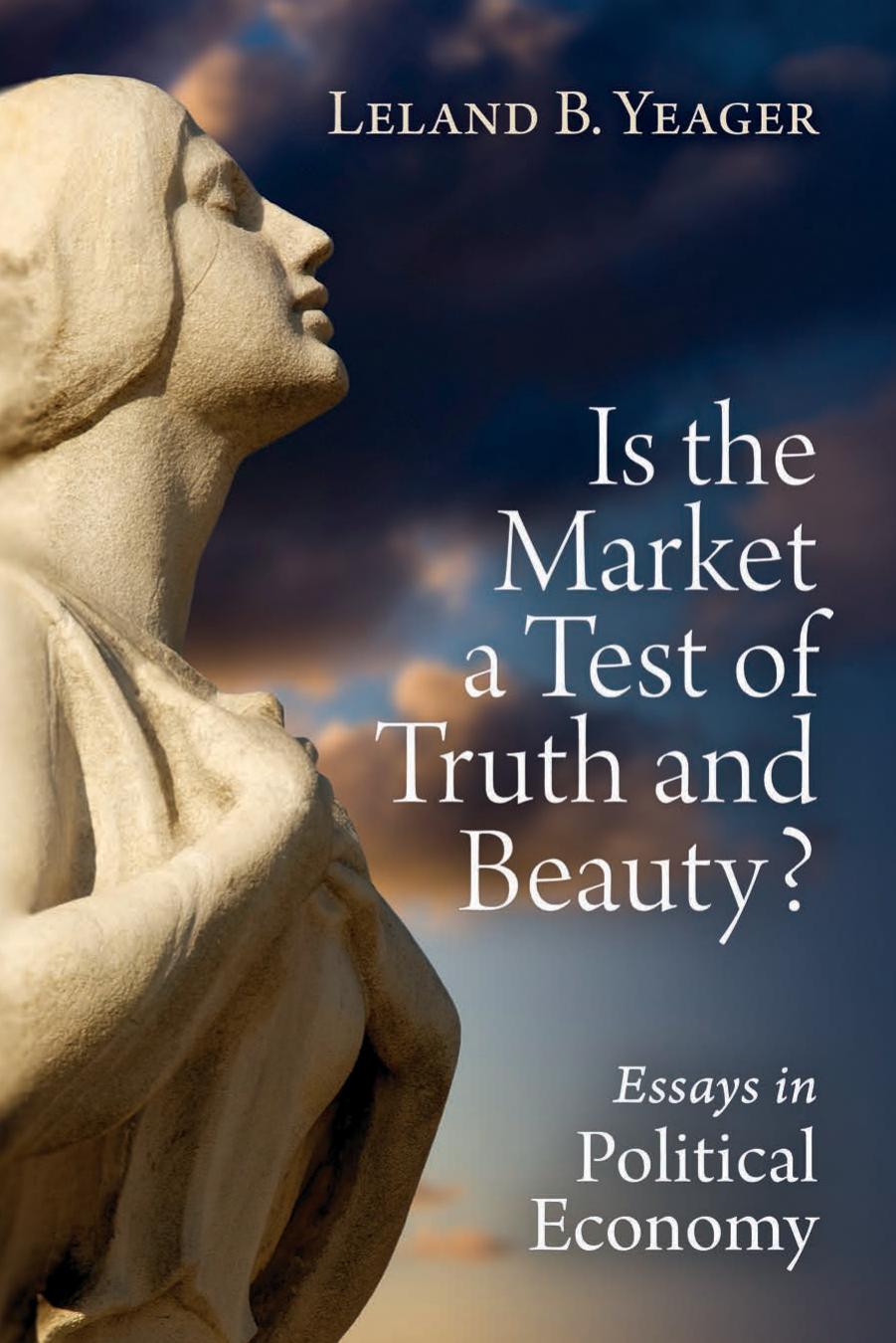Is the Market a Test of Truth and Beauty? by Leland B. Yeager

Author:Leland B. Yeager [Leland B. Yeager]
Language: eng
Format: epub, pdf
ISBN: 978-1-61016-188-6
Publisher: Ludwig von Mises Institute
Published: 2011-11-06T16:00:00+00:00
CHAPTER 14
Tautologies in Economics and the Natural Sciences*
THE TOPIC AND A DISCLAIMER
Quibbles over Walras’s Law trace, in my experience,1 to failure to recognize that the Law is tautologically true. To forestall misunderstanding of this and other pieces of economic theory, it is worth recognizing that useful tautologies are fairly numerous.
This paper issues no methodological exhortations or taboos. It does not urge armchair theory over empirical research. Instead, it looks at a feature shared by several specific examples of successful theorizing. Just as scientists try to explain puzzling phenomena by revealing uniformities hidden beneath superficial diversities, so we may better understand the nature and force of argument on a particular topic by recognizing how it resembles (when it does) arguments on even quite different topics. Elucidating one style or strand or component of argument is not the same as insisting on it as the only proper method of research or exposition.
Tautologies are analytic or logically necessary propositions. They are valid thanks to covering all possibilities (“The world is either round or not round”) or thanks to interlocking definitions. A negation of a tautology is self-contradictory (Consider denying “If A implies B, then not-B implies not-A!’) Most of the tautologies mentioned below hinge on the formulation and interlocking of terms and concepts, whose meanings and interrelations they illuminate.
Analytic propositions can “give us new knowledge” (or aid us in its pursuit). “They call attention to linguistic usage, of which we might otherwise not be conscious, and they reveal unsuspected implications in our assertions and beliefs” (Ayer 1946/1969, p. 35). Logic and mathematics, although apodictically certain, can sometimes yield surprising results. Analytic propositions help one check that the factual propositions being brought to bear on some problem are mutually consistent (pp. 36, 40—41). Tautologies can be useful in applying the “translation test” (illustrated later) and in exposing error (for nothing contradicting a logically necessary proposition can be correct). Tautologies can be useful in focusing attention and organizing discussion.
The examples reviewed below illustrate John Harsanyi’s point (1976, p. 64) that social scientists encounter not only formal or logical problems and empirical problems but also conceptual-philosophical problems. Larry Laudan (1977, chap. 2) calls it “an enormous mistake ... to imagine that scientific progress and rationality consist entirely in solving empirical problems.” Grappling with conceptual problems “has been at least as important in the development of science as empirical problem solving” (p. 45). One of the most important ways science progresses is “the explication of conceptions” (William Whewell, quoted in Laudan 1977, p. 50).
A theory runs into conceptual problems when it is internally inconsistent or vague or when it conflicts with another theory or doctrine believed to be well founded (Laudan 1977, esp. pp. 48—49). Ptolemy’s astronomy managed to avoid most of the empirical anomalies of earlier Greek astronomy, but at the price of “generating enormous conceptual problems” with its epicycles, eccentrics, and equants. Its hypothesis that certain planets move around empty points in space, that planets do not always move at constant speed, and the like
Download
Is the Market a Test of Truth and Beauty? by Leland B. Yeager.pdf
This site does not store any files on its server. We only index and link to content provided by other sites. Please contact the content providers to delete copyright contents if any and email us, we'll remove relevant links or contents immediately.
International Integration of the Brazilian Economy by Elias C. Grivoyannis(110458)
The Radium Girls by Kate Moore(12018)
Turbulence by E. J. Noyes(8040)
Nudge - Improving Decisions about Health, Wealth, and Happiness by Thaler Sunstein(7693)
The Black Swan by Nassim Nicholas Taleb(7110)
Rich Dad Poor Dad by Robert T. Kiyosaki(6613)
Pioneering Portfolio Management by David F. Swensen(6289)
Man-made Catastrophes and Risk Information Concealment by Dmitry Chernov & Didier Sornette(6007)
Zero to One by Peter Thiel(5789)
Secrecy World by Jake Bernstein(4741)
Millionaire: The Philanderer, Gambler, and Duelist Who Invented Modern Finance by Janet Gleeson(4469)
The Age of Surveillance Capitalism by Shoshana Zuboff(4279)
Skin in the Game by Nassim Nicholas Taleb(4239)
The Money Culture by Michael Lewis(4198)
Bullshit Jobs by David Graeber(4179)
Skin in the Game: Hidden Asymmetries in Daily Life by Nassim Nicholas Taleb(3992)
The Dhandho Investor by Mohnish Pabrai(3760)
The Wisdom of Finance by Mihir Desai(3735)
Blockchain Basics by Daniel Drescher(3574)
